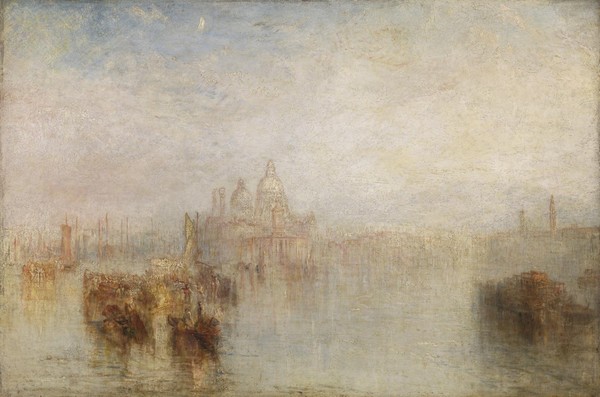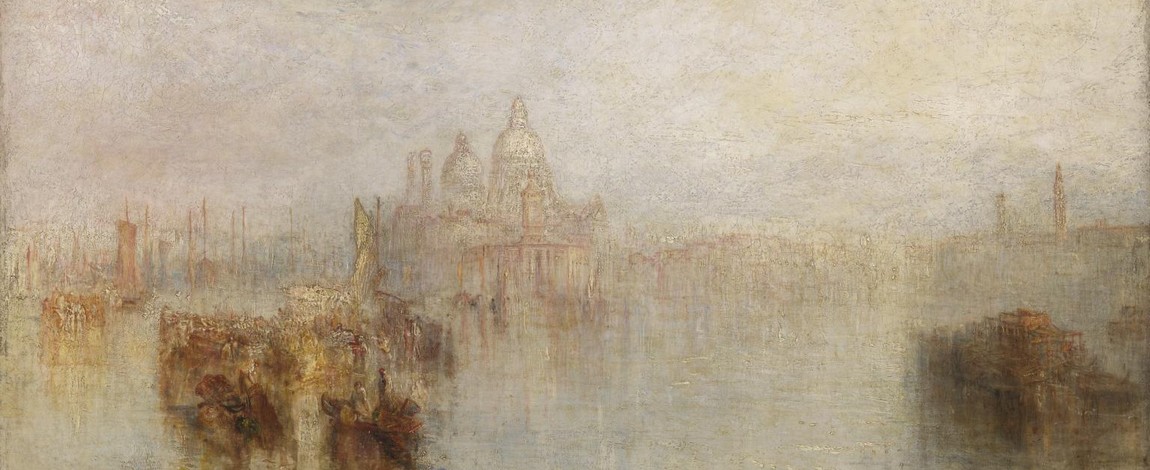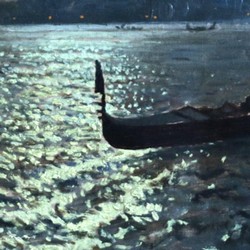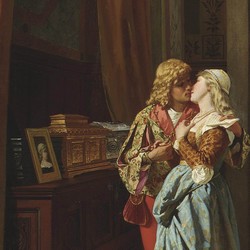
The Grand Tour was a journey through Europe, with Italy as the final destination, that many young men from wealthy families used to do to round off their training and see the world. However, Thomas Moore's trip to Italy was motivated by a different motivation: to avoid the prison of creditors. Twenty-five years earlier, he had been given a position of responsibility in Bermuda, but he stayed only for six months. Then, bored, he delegated another gentleman and decided to know the United States. The following year, he was back in England. In 1818, the gentleman in question (not a gentleman, in fact) embezzled a considerable amount of money, and who was responsible, but Moore? He had no way to return the money, so in September 1919, he and his family went to Paris, avoiding British justice.
Shortly after arriving, he travelled to Venice to meet his friend Byron, who had left England in 1816. Byron had a residence on the Grand Canal, but at that time he lived on the mainland near Fusina. The distance between the two houses was saved by taking a gondola trip. And this is how Moore arrived in Venice, by sea, which is a beautiful way to get there, although it seems he was not paying much attention:
“... a glorious sunset when we embarked at Lusina in a gondola, and the view of Venice and the distant Alps (some of which had snow on them, reddening with the last light) was magnificent; but my companion’s conversation, which, though highly ludicrous and amusing, was anything but romantic, threw my mind and imagination into a mood not at all agreeing with the scene….”
I'm not sure what it's worth to have two great romantic poets together if when they should be blown away by beauty and creating beauty, they are immersed in a trivial conversation. Well... During his stay in Venice, Moore remained at Palazzo Mocenigo, Lord Byron's residence, where he attended every evening for dinner and shared the Venetian night with him. This was a short visit, only six or seven days. I was surprised when I read that the very heavy journeys of the time would justify longer sojourns, but I found that, for example, the painter Turner (who illustrates this article) had made his first trip to Venice a few weeks before Moore and only stayed for five days.
The poets brief journey through the city of canals inspired a series of poems. We heard three musical versions of the one that begins with 'When through the Piazzetta,' the last of which was by Robert Schumann. Schumann included it in the collection Myrthen, Op. 25, along with another of Moore's poems, "Row gently here", also translated by Ferdinand Freiligrath, forming the Zwei venetianische Lieder. When we listened to Wenn durch die Piazzetta I told you that we had to listen to the other one, Leis' rudern hier, and here we have it, No. 17 of the cycle.
It is also a night scene. The poetic voice is headed towards a love encounter. He asks the gondolier to be stealthy, and when they arrive, before reaching the balcony of the house, he tells him to stay here and watch out. The same as Don Giovanni to Leporello before entering Donna Anna's house. And that makes me consider him to be a predator rather than a lover, a feeling that reinforces his final comment. I understand that there are many reasons for the gondolier to watch, even if the gallant is welcome, but it makes me feel uncomfortable.
I would say it wasn't the case of Schumann, who composed a charming, strophic-structured Lied. In the first part of the musical stanza, we hear the gondola glide over the water, with a beautiful melody; in the second, with a very different, almost humorous tone, the rather irreverent comments of the man. We will listen to Leis' rudern hier sung by someone who is familiar with Don Giovanni and Leporello: Bryn Terfel. He'll be accompanied by Malcolm Martineau.
Before I finish: If you're worried about Moore's debt, you should know that he and his family were able to return to England in 1822, with the matter on track.
Now, enjoy the song and the interpretation of Terfel and Martineau.
Leis' rudern hier,
mein Gondolier!
Die Flut vom Ruder sprühn so leise
laß, daß sie uns nur
vernimmt, zu der wir zieh'n!
O könnte, wie er schauen kann,
der Himmel reden -- traun,
Er spräche vieles wohl von dem,
was Nachts die Sterne schau'n!
Nun rasten hier,
mein Gondolier!
Ins Boot die Ruder! sacht!
Sacht auf zum Balkone
schwing' ich mich,
doch du hältst unten Wacht,
O, wollten halb so eifrig
nur dem Himmel wir uns weih'n,
Als schöner Weiber Diensten -- trau'n,
wir könnten Engel sein!
Row gently here,
My gondolier,
So softly wake the tide,
That not an ear,
On earth, may hear,
But hers to whom we glide.
Had Heaven but tongues to speak, as well
As starry eyes to see,
Oh, think what tales ’twould have to tell
Of wandering youths like me!
Now rest thee here.
My gondolier;
Hush, hush, for up I go,
To climb yon light
Balcony’s height,
While thou keep’st watch below.
Ah! did we take for Heaven above
But half such pains as we
Take, day and night, for woman’s love,
What Angels we should be.
(Thomas Moore)


















Comments powered by CComment